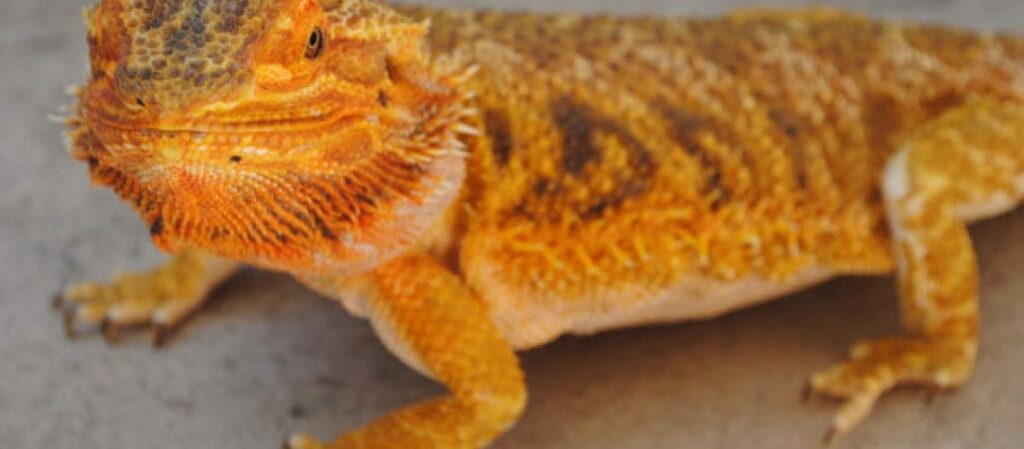These friendly reptiles make wonderful pets, and when cared for properly, have a lifespan of 8-15 years. In captivity, bearded dragons are very social and active during the day.
Diet
A healthy diet for a bearded dragon should be 60-65% leafy vegetables and 35-40% prey items. Some prey item examples include: crickets, various types of worms, pinky mice, and hissing cockroaches. It is important that bearded dragons have vegetables incorporated into their diet from a young age so they learn to accept and like them — much like human children! It is also recommended to supplement their diet with a calcium supplement. Many powdered forms are available that can be dusted over food.
Habitat
Maintaining a proper habitat is also important to the health of your pet. Bearded dragons should be kept in a well ventilated tank with a screen over the top. A heat lamp with a UVB bulb should be kept on one side of the tank so that the warmest spot is no more than 100 degrees fahrenheit and the coolest spot is no less than 75 degrees fahrenheit. This can be achieved by the bulb being between 12 and 18 inches of the top off the terrarium floor. Reptile carpet, newspaper, and paper towels all make excellent bedding choices. Other mediums such as sand can cause digestive problems and blockages. Bearded dragons should also have water to cool off in and a hiding spot to get out of the light if they become too warm. Branches to climb also provides a place to get closer to the light should they become cool.
Veterinary Care
Some common medical issues that can arise in bearded dragons include loss of appetite, egg binding in females, intestinal parasites, skin and jaw infections, and metabolic bone disease. It is important that your bearded dragon receive an annual check up to check for parasites and diagnose conditions before they become serious. If you have any questions, please contact your veterinarian.

